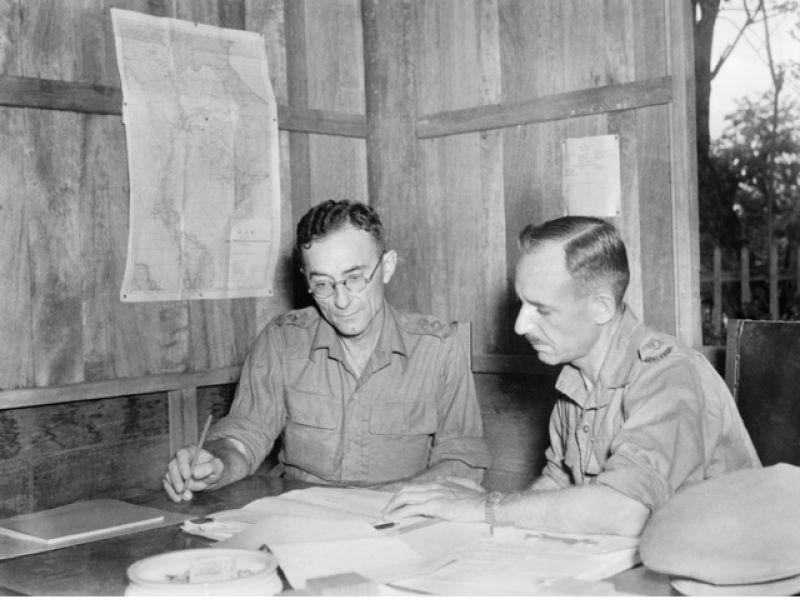Lieutenant Colonel (LtCol) Charles Groves Wright Anderson VC MC, 2/19th Battalion
Anderson Park in Young, New South Wales, is named in honour of Lieutenant Colonel Charles Groves Wright Anderson, who was awarded the Victoria Cross for his gallantry in the Malayan campaign in the Second World War.
Two memorial walls in the park list the names of individuals from the area who volunteered their service in the Second World War.
Charles Anderson was born in Cape Town, South Africa, on 12 February 1897. He was commissioned as a lieutenant in the King’s African Rifles on 13 October 1916 and fought with that regiment’s 3rd Battalion in East Africa against the German-led askari (native forces).
He married an Australian, Edith Tout, in February 1931. In 1934, the couple moved to Australia where Anderson had purchased a grazing property near Crowther in New South Wales.
In March 1939 he joined the Citizen Military Forces, and was appointed captain in the 56th Battalion (Riverina Regiment). He was promoted to major that October and the following July was seconded to the Australian Imperial Force (AIF), where he was made second-in-command of the 2/19th Battalion. This unit was part of the ill-fated 8th Division that embarked for Malaya and Singapore in February 1941.
Anderson was promoted to lieutenant colonel on 1 August 1941 and took command of his battalion. Five months later Japan entered the war and invaded Malaya. Faced with the Japanese onslaught, British Empire forces began a long series of withdrawals down the length of the Malayan Peninsula towards Singapore.
Within a month, Japanese forces were in southern Malaya and Anderson’s unit was among those conducting defensive operations in the Muar area. He led a fighting withdrawal to Parit Sulong when he and his men were cut off and suffered heavy casualties.
Anderson took charge through four days of heavy fighting in a bid to reach Allied lines. For his leadership, his protection of wounded men, and for repeatedly risking his own life, Anderson was awarded the Victoria Cross.
After the fall of Singapore in December 1941, Anderson endured more than three years in Japanese captivity before his release at the end of the war.
Image: Lieutenant-Colonel (Lieut-Col) C. G. W. Anderson, VC, MC, 2/19th Australian Infantry Battalion (left) Commanding, Australian POWs in Thailand, conferring with Lieut-Col C. A. McEachern, Commanding Allied ex-POWs at the POWs Branch Headquarters Recovered Allied POW and Internees Unit, at Vajirajudh College, Thailand.
- Australian War Memorial https://www.awm.gov.au/collection/C188966

 Australian War Memorial
Australian War Memorial